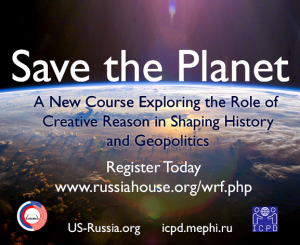
 Speaking before the United Nations General Assembly last week, U.S. President Barack Obama reiterated his belief in the U.S.'s "exceptional" place on the world stage but warned that if the U.S. turned away from its global responsibilities, this "would create a vacuum of leadership [that] no other nation is ready to fill." Nobody doubts that the U.S. is the leading power in the world and will continue to have an indispensable role to play. But no single country can realistically expect to single-handedly resolve all of the thorny problems faced by the global community today
Speaking before the United Nations General Assembly last week, U.S. President Barack Obama reiterated his belief in the U.S.'s "exceptional" place on the world stage but warned that if the U.S. turned away from its global responsibilities, this "would create a vacuum of leadership [that] no other nation is ready to fill." Nobody doubts that the U.S. is the leading power in the world and will continue to have an indispensable role to play. But no single country can realistically expect to single-handedly resolve all of the thorny problems faced by the global community todayThe U.S. needs reliable and trusted partners if it hopes to find solutions to the most serious of these challenges. Thanks to an unexpected turn of events, one of its potentially most valuable allies could turn out to be Russia. The resolution approved last Friday by the UN Security Council, spearheaded by Russian diplomatic efforts, to transfer and destroy Syrian President Bashar Assad's chemical weapons arsenal could in fact turn out to be an invaluable opportunity for a true "reset" in the two countries' relationship.
During the last decade, conflicting interests and different values have given rise to bitter misunderstandings and mistrust. But where disagreement is most pronounced is the contentious issue of the use of military force and respect for national sovereignty. In particular, Russia vehemently objected to both the U.S.-led air campaign against Serbia in support of Kosovo and the U.S.-led invasion and occupation of Iraq. Now Russia strenuously objects to unilateral U.S. military strikes against Syrian targets. Russia has consistently argued that only the UN Security Council can authorize the use of military force, except in clear circumstances of self-defense.
But these and other disputes obscure a far more important reality. The U.S. and Russia have common interests that are far more vitally important than the differences between them. The struggle against international terrorism is an urgent priority for both countries, which have both repeatedly been prime targets for acts of terrorism.
Both countries also have compelling joint interests in promoting trade and investment, nurturing the still-fragile global economic recovery, combating piracy on the open seas, addressing global climate change and preserving international stability and peace.
The current crisis in Syria provides a rare opening for the U.S. and Russia to overcome their differences and find common ground for a strategic partnership to achieve many common objectives including the limitation of weapons of mass destruction. This work began this week when international inspectors made the first steps to catalogue, remove and destroy Syria's massive chemical weapons arsenal.
Such an operation, of course, is fraught with political, security and logistical challenges. And it must be carried out in circumstances without precedent, securing lethal weapons stocks in the midst of a civil war and against strict time deadlines. Doing so successfully will require herculean effort and mutual trust between Russians and Americans.
If both sides can put aside old grudges and discard outdated Cold War suspicions, they can achieve their immediate goal of getting chemical weapons off the battlefield in Syria. This alone would be an admirable accomplishment. It could also set the stage for a true "reset" in U.S.-Russia relations and herald a new stage in the relationship between two countries.
Edward Lozansky is president of the American University in Moscow, Professor of World Politics at Moscow Sate University



_jpg/250px-ElbeDay1945_(NARA_ww2-121).jpg)







